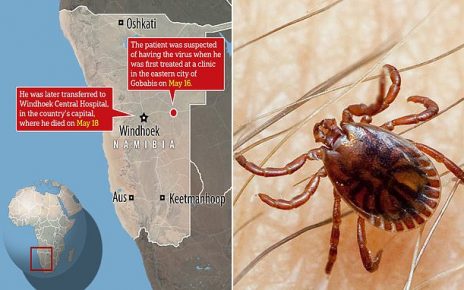(Reuters) – The small U.S. manufacturers that rushed to produce face masks over the past year are now stuck with hundreds of millions of unsold face coverings because China is flooding the market with below-cost masks, and most may not survive the end of the pandemic.
That’s the thrust of a letter to President Joe Biden released Tuesday by a trade group representing 26 small manufacturers that set up production of the badly needed safety items as the health crisis took hold last year.
The manufacturers said over half their production would be forced offline in 60 days if they don’t get immediate federal aid, costing thousands of jobs. They blame low-priced imports, especially from China.
“We write to you with a request for immediate help against unfair trade practices by foreign nations that threaten the viability of the U.S. domestic PPE mask manufacturing industry, as well as future U.S. pandemic preparedness efforts,” the newly formed group, the American Mask Manufacturer’s Association, said in the letter.
The group said they have capacity to produce 3.7 billion surgical masks and more than 1 billion of the higher-protection N95 masks a year – and are now sitting on stockpiles of 260 million surgical masks in their warehouses that they are struggling to sell. Another 20 million N95s are also on factory shelves.
When masks were in short supply last year, prices surged. But prices have now crashed, and hospital administrators and others are shopping for the best prices in a market crowded with new offerings.
A box of 50 surgical masks which sold for more than $50 a year ago can be found for $5 now.
The trade group said while there are 3 to 6 cents in raw material in every surgical mask, imported Chinese surgical masks now sell for an average of 1 cent each. “China … is effectively dumping masks on the U.S. market at well below actual costs.”
“If this remains unchanged, 54% of our production will go offline in 60 days and 84.6% in less than a year,” the group said in the letter. The group said they’d created more than 7,800 U.S. jobs in the last year, but roughly a third of those have already been lost to production cuts.
PROTECTING PRODUCERS
The Biden administration has pledged to look at ways to support domestic producers of protective equipment – including potentially finding ways to subsidize U.S. producers – but the government reviews are still underway.
“The idea that everyone expressed during the crisis – that we need to avoid (PPE shortages) ever happening again – hasn’t changed profit-driven institutions,” said James Wyner, chief executive of Shawmut Corp., a West Bridgewater, Massachusetts, maker of engineered materials that expanded into mask production during the crisis. “The distributors are still sourcing their stuff at the lowest price.”
Wyner said he’s selling masks from his new production lines, but “substantially less than we would like.”
Adam Albrecht, senior quality control manager at Indiana Face Mask, another small producer, said when the firm first started producing the higher-filtration N95 masks last year, “People came out of the woodwork, saying: ‘We can sell this, we can sell this.’ But it seems no matter how much we adjust prices down, the Chinese stay just below.”
Some of the small mask makers are confident they will survive.
Dan Izhaky, who together with a partner has invested $4 million in a new mask factory outside Los Angeles, said the challenge is greater for makers of surgical masks, the ubiquitous safety masks that are relatively easy to make. Izhaky’s company makes more complex N95 masks and he said he has continued to expand. “But we also believe the Biden administration is going to take a number of steps down the road to really help us be sustainable,” he said.
The mask trade group – which doesn’t include industry giants such as 3M Co. and Honeywell International Inc. – urged the Biden administration to take immediate action to support the industry.
Their recommendations include requiring the federal government and any other institution receiving federal dollars for buying protective equipment to buy only U.S.-made masks that comply with government rules on domestic content and remove any masks in the federal stockpile that don’t meet federal standards. They also want the administration to require any hospital that accepts federal funds to earmark 40% of its spending on PPE for domestic producers by 2023.
They are also asking the government to consider buying the 260 million masks now stockpiled at the new factories.
Source: Read Full Article


